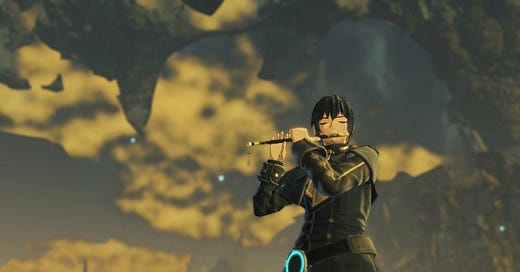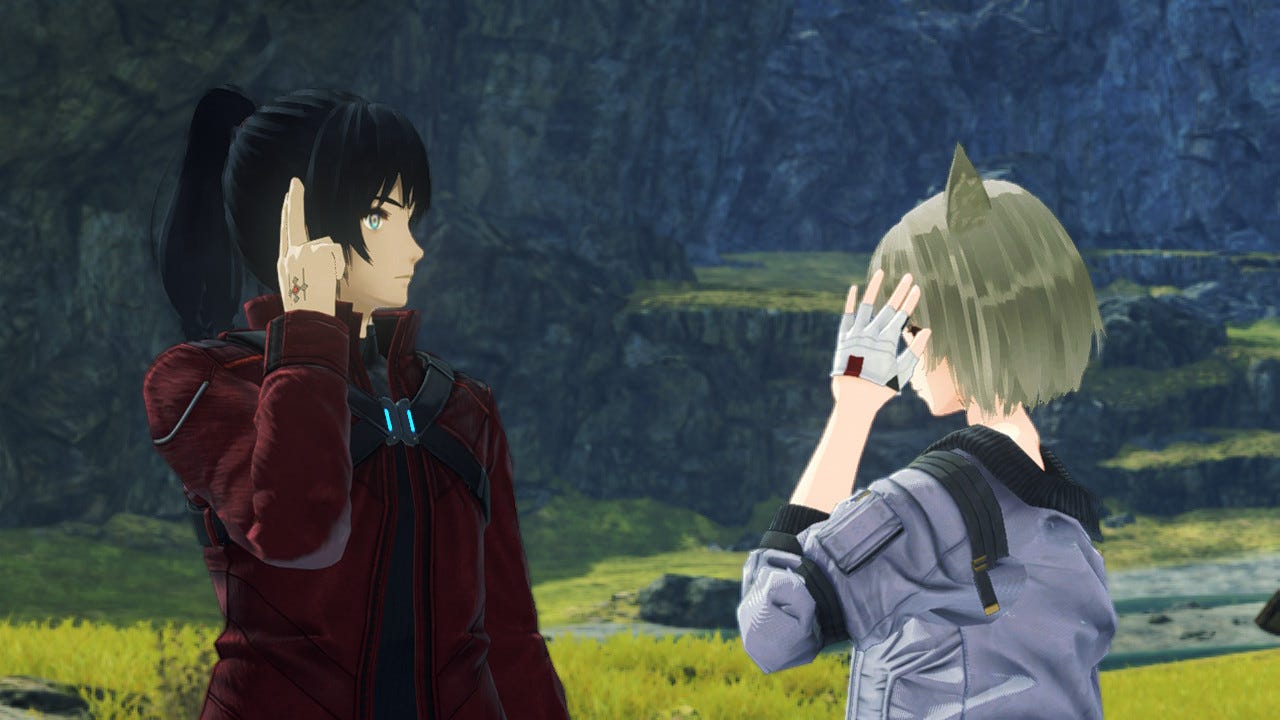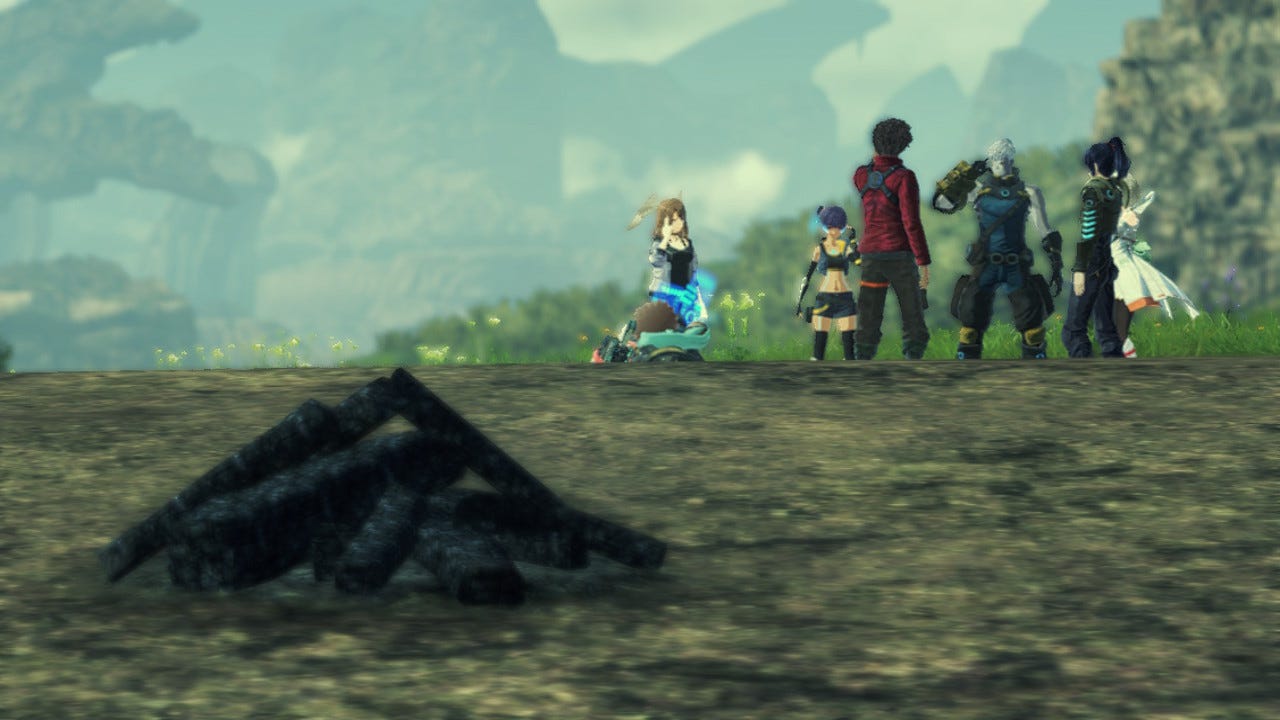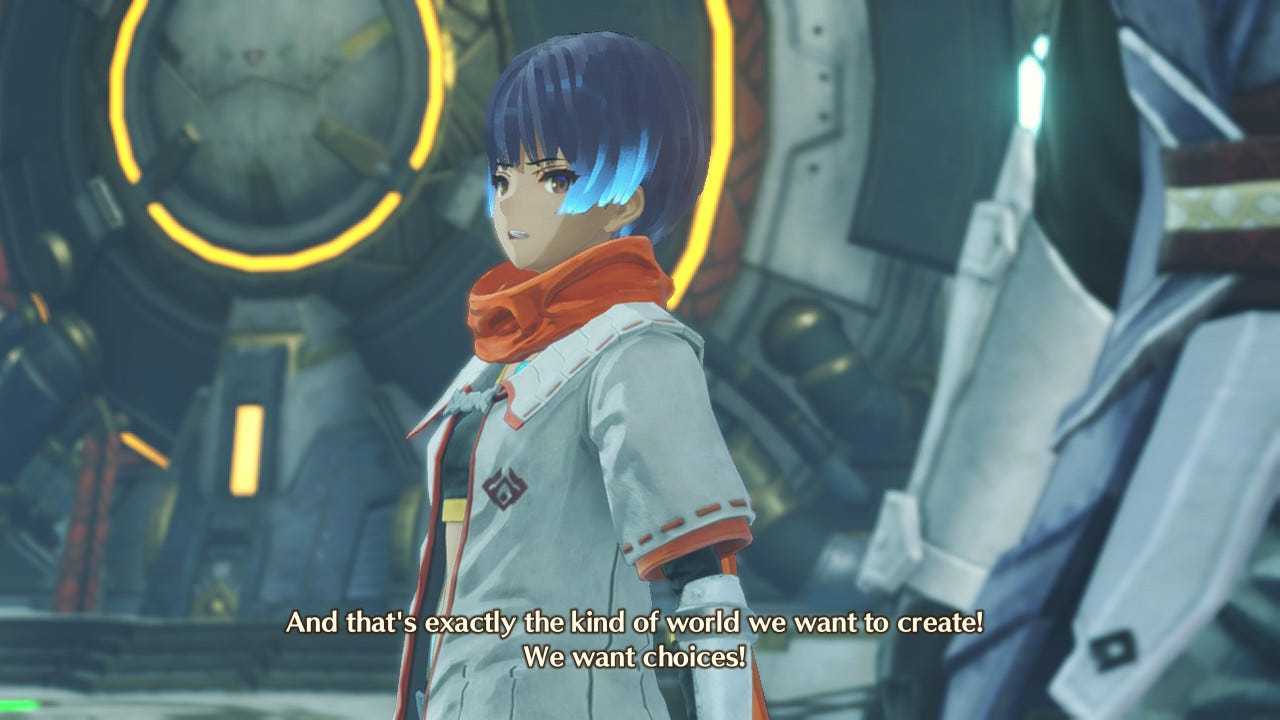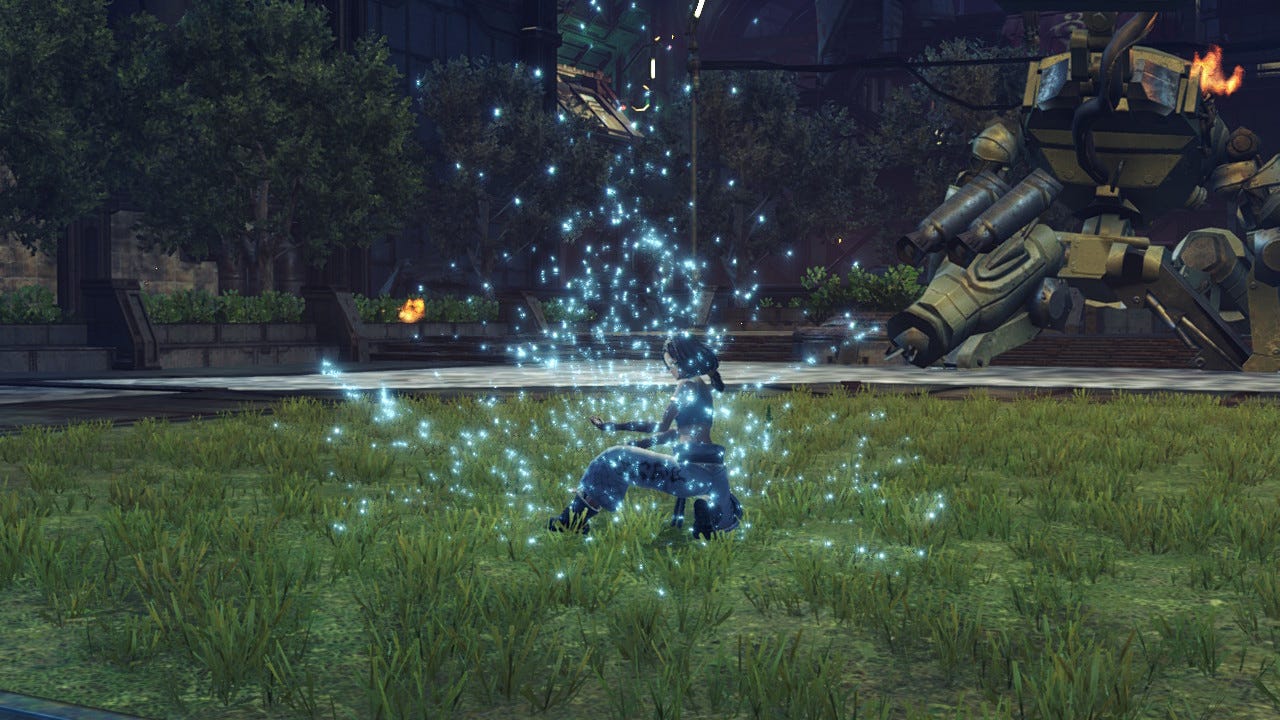Xenoblade Chronicles 3 has a lot to say about life
When the best decision is the one that resonates the most with you
Lately, I have been fairly nostalgic about the time when I was a teenager. Looking back, I can only remember being a cooler and more honest version of myself. I would wear my Naruto’s bandana, a Kingdom Hearts-themed necklace, and my black Converse. And I would feel unstoppable. At that time, I would also write whatever came to my mind. Short stories. Essays. Criticism. The process of trying to understand the inner sentimental turmoil I was going through at that time made me starving for art. Games and books and movies and music. I filled the hours of my days with whatever I could find. Otherwise, it seemed like I would suffocate.
In hindsight, it is difficult not to praise me for the courage to live life following my own rules. I’m thirty-two now and the feeling I’m only responding to external demands is constant. I hardly feel in a position of autonomy about my life. Emancipated. The everyday life in our society has a mischievous way of putting us in autopilot mode. While I have been struggling with these feelings for some time, I could only put them into words as an existential crisis. Thankfully, I played Xenoblade Chronicles 3.
I knew Xenoblade Chronicles 3 would be a long-ass game with an emotional narrative, a charismatic roster of characters, nopons, and vast regions – sometimes annoyingly vast. Side quests to complete, gems to craft, and heroes to unlock. The complete pack. What I didn’t know was that weaved into these aspects, the game presents a beautiful meditation on life. From environment to class system to narrative, Xenoblade Chronicles 3 provokes us to reflect on how life connects us; how one can learn about the way others live; and in which way life is an individual and a social experience. But above all, how fundamentally effective it is to find autonomy over your own life.
From the beginning, Xenoblade Chronicles 3 makes it their utmost goal to make us understand that in this world called Aionios, the nations of Keve and Agnus have been fighting each other forever. The scene that preludes the first – of many! – tutorial segment of the game shows soldiers killing and being killed by different types of weapons. The conflicts between Keve and Agnus are motivated by a system that regulates the lives of the citizens of both nations. The vital energy of the killed soldiers is sucked by a humongous robot in the enemy army, which is converted into their own subsistence. Killing is justified by the desire to live.
The many battles we watch unfold in the game – through flashbacks or the eyes of the main characters – display always the same elements, reinforcing the endless state of the violent condition their world lives in. The terrain where the soldiers gladiate share always the same dry earthy look and feel. Most soldiers wear similar armor and weapons, wiping them out of any traces of individual identity. After a few hours of playing XC3, it’s not impossible to find yourself asking if the game is repeating a scene or if it's a new one.
How exactly the vital energy of soldiers prolongs others is not explained. All we know is that life takes the form of floating luminous particles once the fight is done. These are the remains of a person’s life that is about to disappear into a machine we have no business learning the minutiae of its mechanics. Any logical explanation about how this system works the game could offer us is made irrelevant by the indifference with which life is treated.
While life is treated as pure energy in a more broader sense, it has a more intimate and urgent meaning to individuals living in Aionios. When we meet one of the main protagonists, Mio, she is facing the last months of her life. In both nations, a soldier who doesn’t find their end on the battlefield will regardless live only ten years. Death is a programmed reality, and not a concept they wonder about during a shower late into the night, when the feeling of solitude makes mortality a surface they can touch.
Life receives a systematic treatment in the world of Aionis. Each year that a soldier stays alive is referred to as a term, an intriguing choice of words to talk about the conditioning of being alive. XC3 plays with language to indicate how the people in this world are, above all, soldiers serving their time. Even if you haven’t gone far into the game yet, you might have realized that there aren’t cities in XC3, a weird concept for a RPG. It does make sense, however, if we consider that their only purpose in life is to improve as a soldier. In Xenoblade Chronicles 3, the military discourse is the matrix of their reality.
In one way or another, life is subject to a lot of attention and concern in the world of Xenoblade Chronicles 3. People have no voice when it comes to deciding how long they will live. In order to fully try their ten-term life, their only option is to risk their lives on the battlefield while facing others who are motivated by the same conundrum. However, despite all the violence life is subjected to in the overall dynamics of this world, Xenoblade Chronicles 3 believes in a better world. It defends the possibility of change paved by a politics of emancipation.
As long as some people live truthfully to their desires, the world can change and the future can be redeemed. But before, we need to understand our place in the world alongside those with whom we share this life. For Noah and the rest of the group, becoming Ouroboros is the perfect – almost too perfect – narrative excuse to put them in confrontation with differences from which a notion of a self unfolds. Transforming into their powerful forms involves sharing their memories and feelings with their partner who is always from the other nation. Noah and Mio see one another playing flute to fellow soldiers who are no longer around. Although they are considered the enemy, they also go through the same pain, shortening the distance between those who were up to then strangers. Once they learn about their partner, they also understand more about themselves.
I like that, regardless of how optimistic the game is, Xenoblade Chronicles 3 doesn’t romanticize the process of emancipation. The power of Ouroboros by itself is not enough if Mio, Eunie, Noah, Lanz, Sena and Taion don’t start being true to themselves and support each other. If they couldn’t hold their weapons – without a guarantee they would come out victorious – against Moebius and fight for a freedom which they believe, the world would never change. Being true to oneself is to act according to their desires and moral principles, which leads to reaching a certain level of autonomy about their own life. It doesn’t matter the situation, they will handle it based on what resonates with them.
Among the members of the main group, Noah is always the example of someone who follows the path of this heart. He is disciplined, training every day with his sword before breakfast. Fulfilling his role as an off-seer is important to him even when he is dealing with the spirits of enemy soldiers. But, Noah can’t do much alone. Xenoblade Chronicles 3 not only forces him – and all the others – to pair when transforming into Ouroboros, but the game also gives us a party of six characters. We are stronger when we are together.
Not everyone in the world has the privileges which give them the power to confront the antagonistic forces they might encounter. This doesn’t mean they should give up on living life according to their own principles. In a beautiful side quest, Xenoblade Chronicles 3 proposes doing the opposite is cruel and deadly. Later in the game, after we have finally reached the City and that major event takes place involving Mio, we learn what happens to Shania and that she couldn’t find the support to follow what actually talked to her. A delicate and sensitive soul, Shania had never been cut out for war. While her ending might have been the same, Shania could have lived a happier life if she had the chance to be true to herself.
I remember finishing the game and feeling like a truck had run over me. Besides having a lot of fun timing my skills to maximize my DPS and unlocking new classes, I loved my time with XC3 because it helped me give form to something I have been feeling for some time. The story of these six characters reminded me that I need to be true to myself. In my case, I need to accept that, above all else, I really want to write and make it a core part of my life. Despite the challenges that come with it — like actually enjoying my pieces — and the fact it is extremely hard to live out of writing, I must accept that this is part of me.
While having played the first two Xenoblade Chronicles games prepared me for an intense experience, I wasn’t expecting these ideas and discussions to be so relatable. Life is a beautiful motif for art to make us connect to it and in some way or another, think about it. The sixty hours of gameplay teach us that autonomy doesn’t come easy or free. It is a process that we should see through with the conviction of looking for the life we believe is the right one for us.

